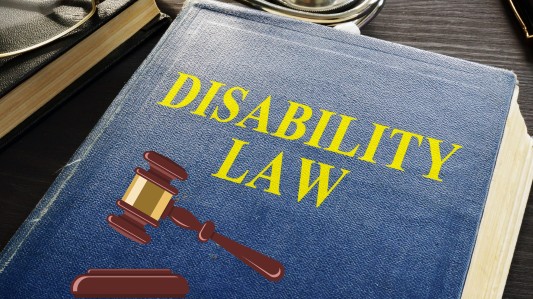
The High Court sitting in Edo State has approved the sale of electronic copies of the laws of Edo State on the website of the Edo State Ministry of Justice for One Thousand Naira even where there are no hard copies of the same on shelves. In 2023, the applicant challenged the imposition of payment of One Thousand Naira to access the e-copy of the Edo State Persons Living with Disability Law from the website of the Edo State Ministry of Justice.
The centrality of the applicant’s case is that the exclusive digitization of law encumbers free access to the laws and by extension justice. The case was filed by the Initiative for Rural Development, Information and Legal Advocacy (RUDILAC) against the Attorney General of Edo State in suit no: B/28m/2024.
In this case, the applicant intends to access Edo State Disability Law but was asked by the administrator of the website to pay One Thousand Naira. The applicant went to the Edo State High Court and Edo State Library but could not find a hard copy of the law and then wrote to the State Governor for an explanation for the unavailability of the law in public places and later went to court for intervention.
The Applicant contends that the Edo State Government infringes on the Applicant’s right to receive information when it refuses to print hard copies of the Laws of Edo State. This is because there is an obligation on the Government to ensure citizens have unfettered access to the law passed and gazette by public notice.
The applicant further argued that laws are not textbooks; they must be published and available for free in public places in both soft and hard copies. Where laws are only on soft copies and accessible only via an internet connection, access is said to be restricted. This is because laws must be published by law and no law protects e-copy publication in Nigeria. Since law serves as an instrument of social change and control, restricted access discourages voluntary compliance and active civic participation.
The peculiarity of the Applicant’s case is that there is no hard copy publication of the Edo State Laws in public places or libraries. This fact was stated in the applicant’s affidavit in support of its application. The respondent denied it at the counter affidavit filed and said copies were on the shelf but the respondent failed to show proof of the laws on the shelf. The onus is on them to prove facts peculiar to their knowledge.
The applicant also canvasses that charging for access to electronic laws introduces an unwarranted financial impediment, particularly affecting the pro-poor. Furthermore, the legal landscape thrives on innovation and progressive research and granting free access to electronic laws invigorates legal professionals, scholars and researchers in a way that positions our state as a hub for legal advancement and innovation in a dynamic and evolving legal system.
The Edo State government’s defence is that for every guaranteed right under the Constitution, there is a corresponding duty and obligation that arises. They argued that the charge of N1000 to access the law constitutes the corresponding obligation on the part of the applicant to enjoy the right to information as guaranteed under section 39 (1) of the Constitution of 1999. They also argued that the essence of paying the N1000 charge is for administrative purposes to maintain the website and server
Hon. Justice Marry Nekpen Asemota of the High Court of Justice of Edo State held that “in the circumstance, can the applicant be said to have been denied access to the Disability Law of Edo State? I do not think so. If one may ask, had the applicant gone to a bookshop to purchase a hard copy rather than an e-copy from the website would the applicant not have paid for it? In my view, it would be stretching the rights guaranteed under section 39 of the Constitution too far for an applicant to insist on getting free access to an e-copy of the Edo State Persons Living with Disability Law or any other e-copy of any law for that matter without paying a token fee. This certainly would not be the intendment of the framers of the Constitution”.
Laws are typically public documents meant to be accessible to everyone. Where it is exclusive in soft copy, it may limit access for individuals who lack digital devices or internet access. Persons with Disability, face a variety of barriers including physical, technical and social. Where the law for these special persons is solely tied to online access, the high cost of the internet, poor internet infrastructure and the high cost of adaptive devices like screen readers; braille and specialized keyboards will impede access.
FOI Counsel has been at the forefront of promoting the rights of persons with disability through legal support. In 2019 assisted Unemployed Youths of Nigeria to institute a suit against the Federal Government of Nigeria for failure to reserve at least 5% minimum employment opportunities/ job quota for persons with disability during Department of States Service recruitment in 2020 as provided for in United Nations Convention on Rights of Persons with Disabilities, Protocol to the African Union on Right of Persons with Disability in Africa, the Constitution of Federal Republic of Nigeria and Discrimination against Persons with Disabilities (Prohibition) Act 2019.






